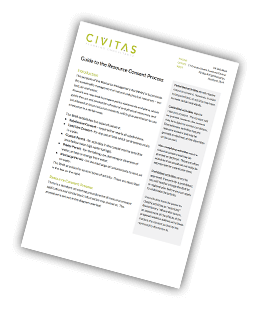Framework Plans
By Iain McManus
As notified, the Proposed Auckland Unitary Plan (“PAUP”) provides for the development of a Framework Plan as a way for land owners in certain precincts ‘to demonstrate and achieve the integrated development and/or subdivision of land within brownfield and greenfield development areas’.
Effectively, a Framework Plan sets out a framework for the development of an area, usually including the location and physical extent of roads, open space and, in some cases, allowable building envelopes.
To encourage land owners to apply for Framework Plans, the notified PAUP provided for Framework Plans as a restricted discretionary activity (where it complies with the applicable controls), and any subsequent development in compliance with an approved Framework Plan as a restricted discretionary activity. Any development not in accordance with an approved Framework Plan, or prior to the approval of a Framework Plan is a non-complying activity.
Through these provisions, Auckland Council (“Council”) sought to incentivise land owners to apply for Framework Plans, and to discourage development not complying with an approved Framework Plan.
Environment Court Proceedings
In response to submissions and evidence given to the Independent Hearings Panel (“Panel”), Council recently sought four declarations from the Environment Court (“Court”) concerning the legality of the Framework Plan provisions within the PAUP as notified.
The Court made it clear that the concern was with the legality of the provisions and not their merit (or otherwise). The Court concluded that:
- It is ‘ultra vires” (beyond the power of a consent authority under the RMA) to require resource consent for a plan, as opposed to an activity.
- It is ‘ultra vires’ to incentivise Framework Plans by giving activities in accordance with an approved Framework Plan a more permissive activity classification.
- It is ‘intra vires’ (within the power of a consent authority) to incentivise Framework Plans by providing for non-notification of applications consistent with an approved Framework Plan.
Council’s Response
As a consequence of the Court’s interim rulings, the Council filed amended provisions with the Court, and subsequently with the Independent Hearing Panel. Of note, the notified terminology of ‘Framework Plans’ has been replaced by ‘Framework Consents’ and Council has revised Chapters G and K of the PAUP to:
- Clarify that framework consents are resource consents that authorise key enabling works necessary for development of land.
- Re-classify all activities occurring within a precinct as restricted discretionary activities, removing the distinction between activities preceding an approved framework plan/consent and in accordance with an approved plan/consent.
The Council has retained the incentive of more lenient notification provisions for activities in accordance with an approved Framework Consent. The amended notification provisions provide for applications for resource consent for buildings (alterations and additions to buildings) and subdivision, made subsequent to the approval of Framework Consents, to be processed without the need for public notification. Applications for the same on sites that are not the subject of an approved Framework Consent will be subject to the normal tests for notification under the RMA.
We now need to wait until the Hearings Panel releases its recommendations on the PAUP, and for Council to release its decisions on those recommendations, to see whether the proposed revisions will be adopted.
Our View
Framework Consents are intended to be voluntary, and land owners are under no obligation to apply for a Framework Consent.
However, it is clear that Council supports the concept of a Framework Consent as a means to enabling integrated development.
With the Court having removed the incentive of a more permissive activity status, it is unclear whether landowners will be inclined to apply for what is, in effect, a preliminary resource consent, only to then repeat the process and apply for consent to undertake actual development.
The time, cost and effort required to apply for a Framework Consent for enabling works may very well be outweighed by the benefits of applying for development in a single application, and the incentive of non-notification for subsequent applications may not be sufficient to incentivise landowners to go down the Council’s desired path.
The Court made it clear that the substantive merits of the proposed provisions are within the remit of the Independent Hearing Panel rather than the Court. As such, we wait in anticipation for both the release of the Panel’s recommendations, and the Council’s decisions on those recommendations.

